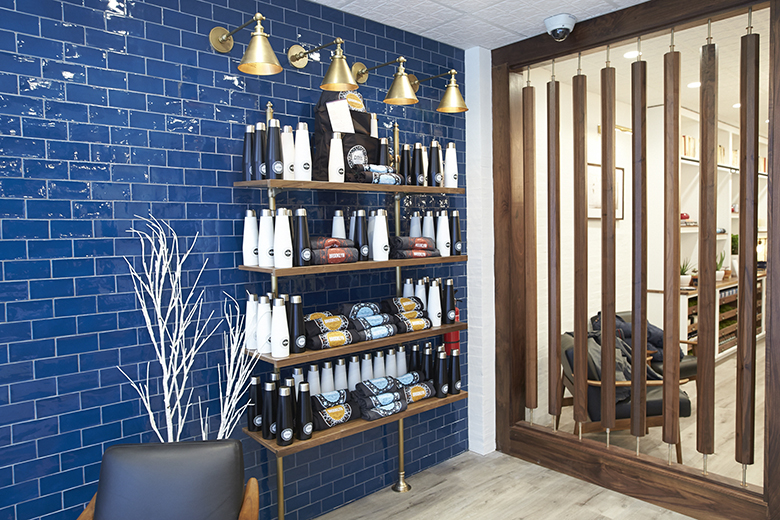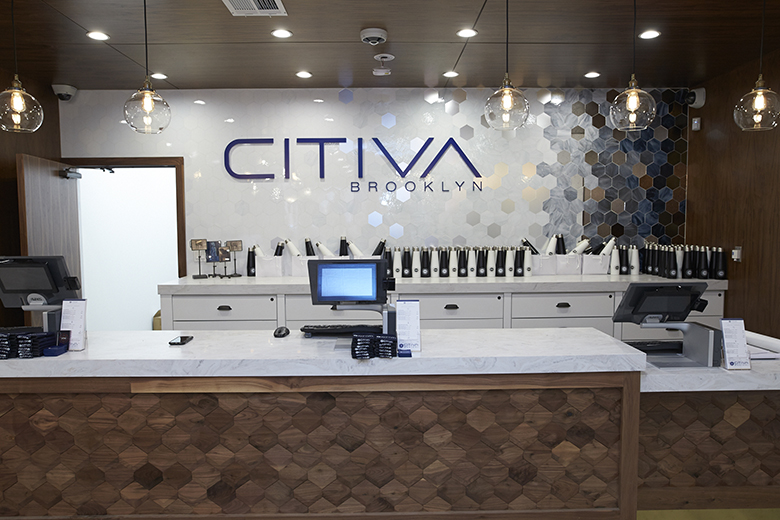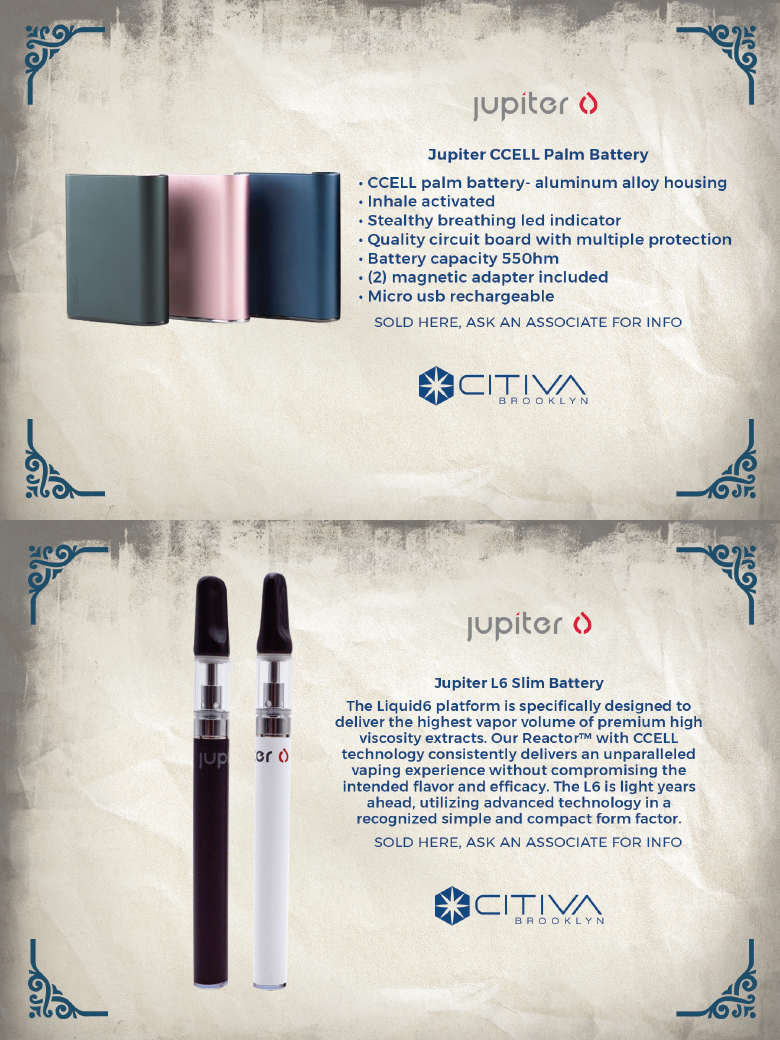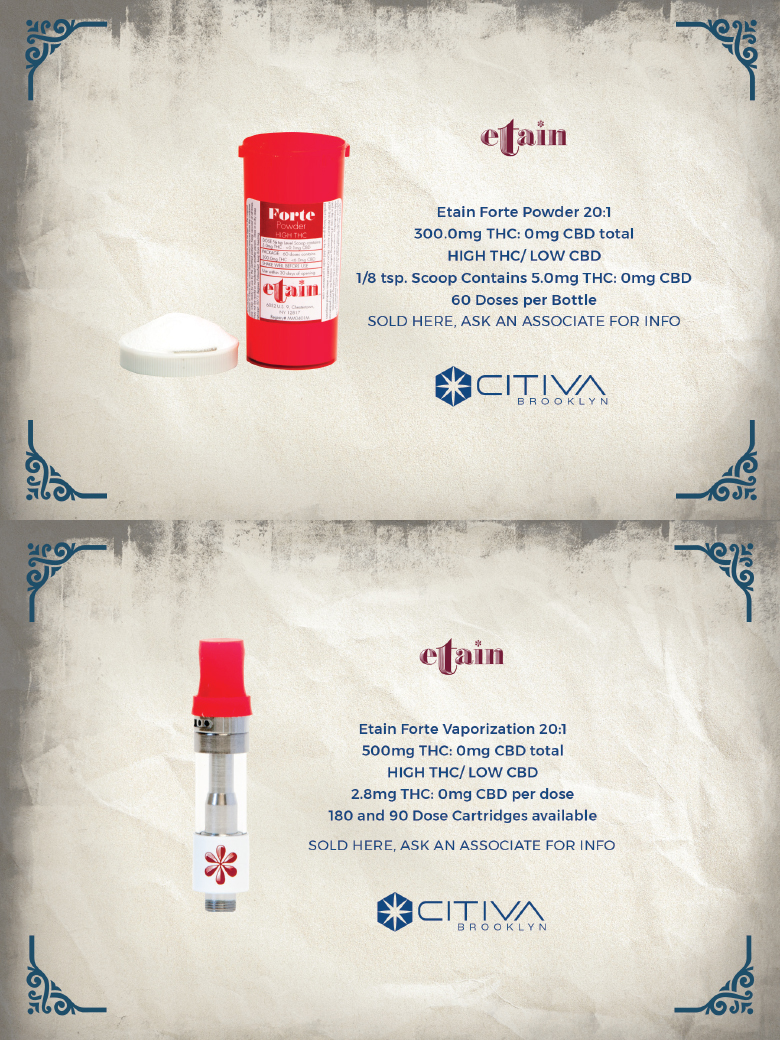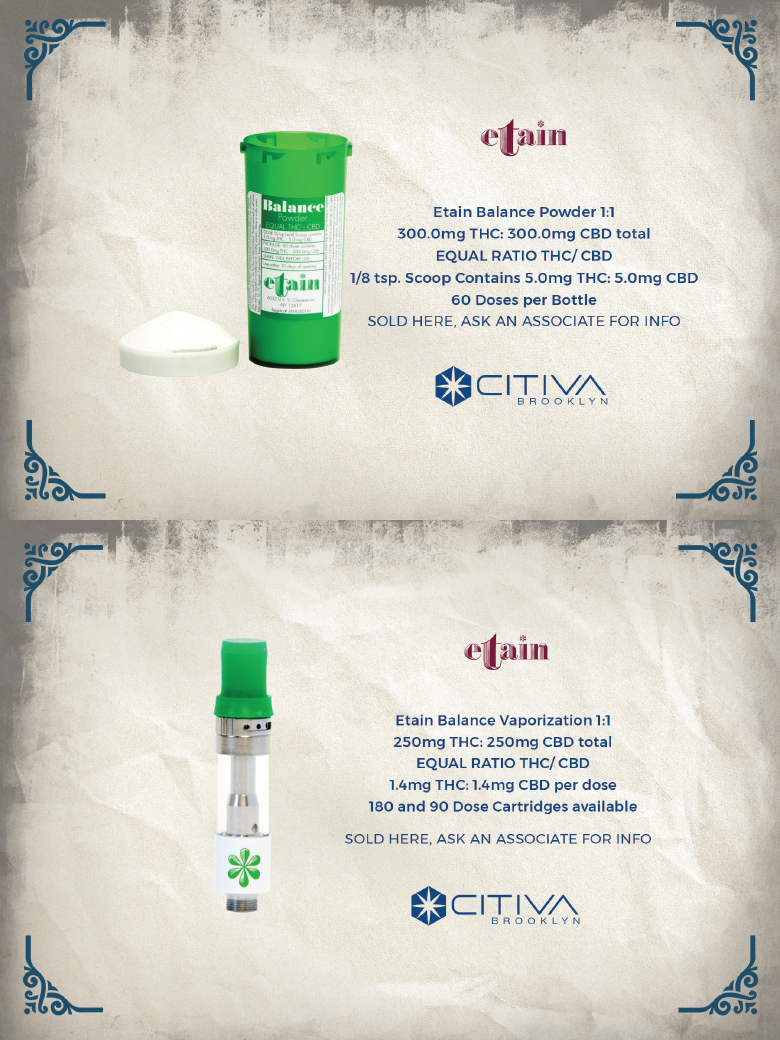
The first medical marijuana dispensary in Brooklyn quietly opened over the holidays at 202 Flatbush Avenue, on the Park Slope border near Barclays Center. Citiva Brooklyn is the company’s first location in New York State, and they opened a second location in Buffalo just two weeks ago.

The dispensary is just around the corner from KITH and other high-end shops, and you could easily walk past Citiva’s wooden exterior, mistaking it for another bourgeois bohème spa or “wellness” shop—and perhaps that’s the point. Inside, you’ll find a lot of green—plants on every open space, moss and airplants line empty shelves—but you won’t find any actual marijuana buds here, because buds, or “flower,” are not yet approved in New York State. Instead, all cannabis flower must be processed into oil for vaping or taken as drops orally. (New York, despite being a huge market, still lags far behind other states in offerings.)
Citiva’s vast menu of products includes a variety of oils for vaping, tincture (drops), and a water soluble powder, all ranging from 100 percent CBD, to low-CBD/high-THC blends. In addition to high-end organic medical marijuana products, Citiva sells a range of accessories, including batteries, branded water bottles and T-shirts. As a card-carrying New Yorker, I can personally say that Citiva has a broader range of products, and better pricing, than MedMen, the chain of U.S. dispensaries that opened their first New York dispensary on Fifth Avenue last year. To enter Citiva, you must have an active New York State Medical Marijuana I.D. card, but it is far easier to become certified than it used to be.

Beyond cancer, there is a growing list of conditions that now qualify for the medical marijuana program in New York, including drug addiction, thanks to Governor Cuomo. As an alternative to opioids, you can now request a permanent or temporary medical marijuana card, by visiting a certified doctor and applying on health.ny.gov. In states like Colorado, Washington or California where marijuana is recreationally legal, in dispensaries you’ll find products ranging from actual buds and edibles to Nicorette-style patches, bath bombs and even dog treats. In contrast, New York State has been slow to offer new products, as Amy Holdener—VP of operations at Citiva—explains: “Dispensaries are required to source all of their products from within New York State through approved, licensed wholesalers, and until January 1, 2019, the number of approved wholesalers was very limited.” This would explain why products like topicles (lotions) and lozenges (mints, hard candies) are not yet available in dispensaries, despite being approved for sale within New York. “We are working on a number of new products that will be available later this year,” says Amy. “It’s a very exciting time to be in this industry.”
Grocery stores and bodegas across all five boroughs are now stocking CBD drinks and gummies, and of course high-end coffee shops are cashing in on the trend, offering CBD lattes and smoothies—but there is a major distinction between these products and anything purchased at Citiva. Any CBD products purchased outside of a licensed medical marijuana dispensary are not regulated by the FDA, and a recent study by the University of Pennsylvania revealed that nearly 70 percent of products tested had inaccurate labeling. Additionally, the source of the CBD oil is questionable as commercially purchased CBD is often derived from hemp plants, not cannabis plants, and are often grown in China.
The more we understand the benefits of cannabis on our own endocannabinoid system that all animals have, the more we learn that CBD works best when taken with at least some amount of the many other compounds in cannabis, including THC. Industrial hemp doesn’t have this same synergistic mix. All this is to say you might want to know your source before shelling out $12 for that CBD latte.
Photos courtesy of Citiva.


